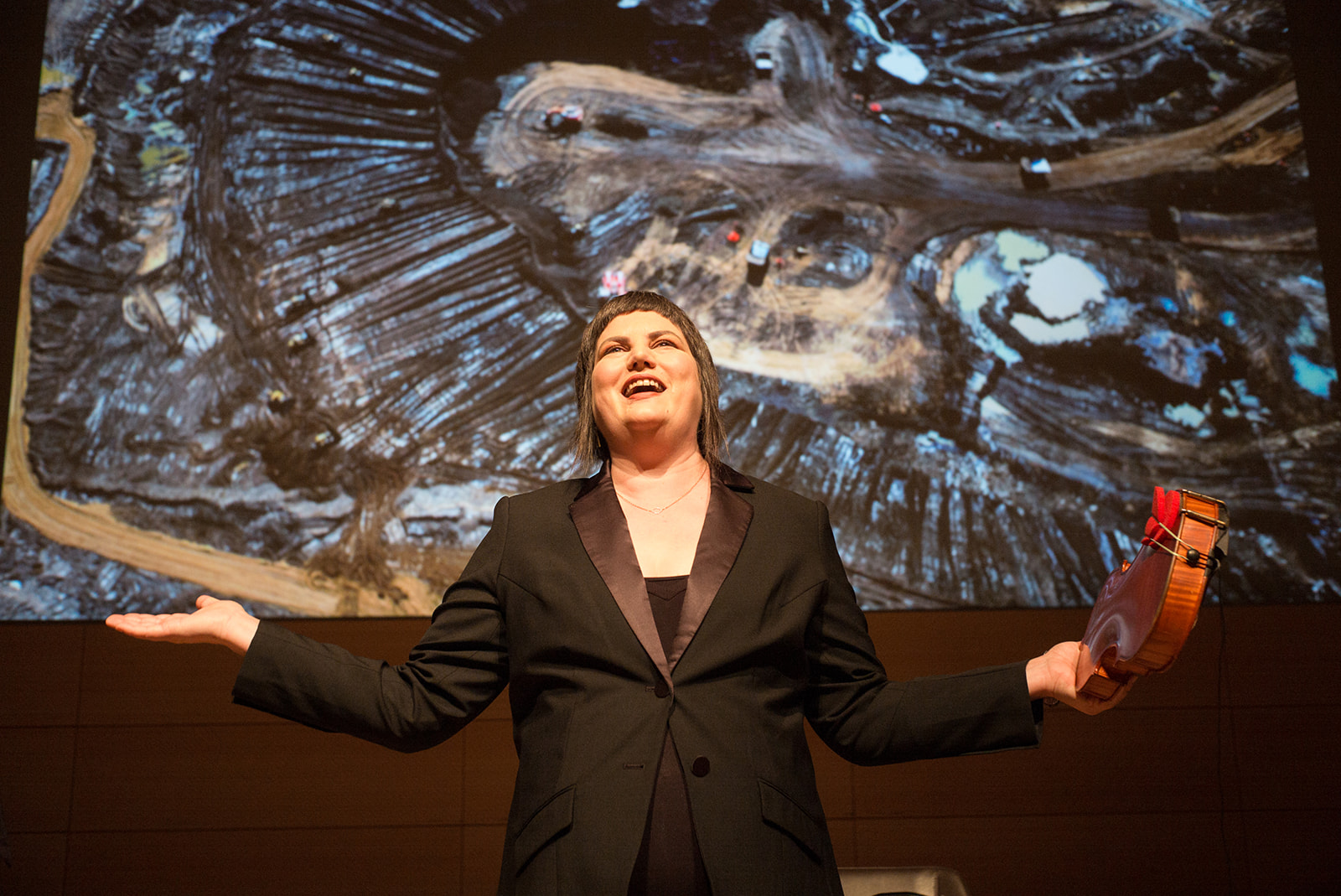In Alberta, using the term “tar sands” to describe the Athabasca Oil Sands is akin to a four-letter word. But for Fort McMurray expat Tanya Kalmanovitch, the term tar sands isn’t a dirty word, but rather one that signifies her connection to home and her complicated relationship with the oil industry.
“The comment [section] always lights up with people saying ‘Well, the minute she says tar, she doesn’t know what she’s talking about,'” says Kalmanovitch, who grew up in Fort McMurray and now lives and works in New York City. “That’s where I say they don’t know what they’re talking about, because when I was a kid, everyone called it a tar sand. It was intimate; a nickname. It was showing you belonged to the place.”
It’s that connection that inspired Kalmanovitch to create a new solo show titled Tar Sands Songbook. The 80-minute show weaves together music, photography and storytelling to probe the cultural impacts of Alberta’s oil industry and examine the intersections between environmentalism, industry and community in oil country.
“What I was trying to do was to understand the stories of people whose lives, like mine, are really shaped by Alberta oil,” Kalmanovitch says.
Kalmanovitch first began work on Tar Sands Songbook in 2015, after participating in a panel discussion on art and climate change. But really, it was her formative years that served as the performance’s jumping off point.
“My fellow panelists, one of them started talking about the tar sands and it hit me in that moment that I was probably the only person in the room who could find Fort McMurray on a map,” Kalmanovitch says. “For me, it really challenged a decision I made when I was about 14.”
That decision was to pursue the arts. At 14, after becoming aware of the environmental implications of fossil fuel extraction, Kalmanovitch decided to dedicate her life to music — a pursuit she believed was about as far from the oil industry as she could get.
